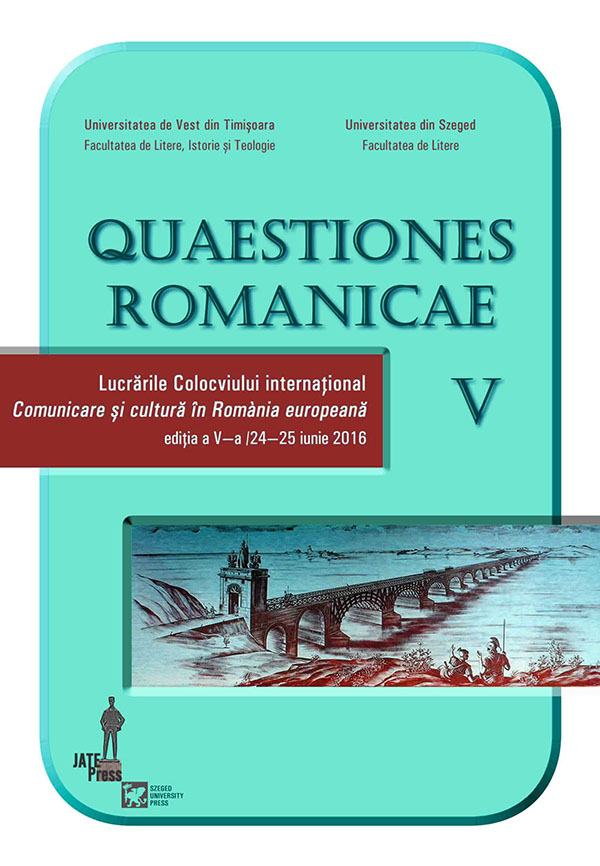Propagarea valorilor romane imperiale prin discursul anchisian. Vergilius și imaginea Romei imperiale
Abstract: (The Propagation of the Imperial Roman Values Trough the Anchissian Speech. Virgil and the Image of Imperial Rome) This paper seeks to offer an image of the way in which Virgil relates to the history and the morals of the Imperial Rome. Virgil writes the Aeneid, at the request of Augustus, who wants to see the creation of a new literary work which shows the role of the empire in the process of Rome`s and world`s creation. In a short period of time, the epopee becomes the national epic of the Romans. In the sixth book of the Aeneid, into the layers of the inferno, the augustan poet interpolates moral and militar aspects that are defining the Roman society. The emperor wanted to brink Rome back to its original state – aurea saecula – a period characterized by peace, simplicity and innocence. The Elyseean Fields displays a hero`s panoply, along with the governors and other personalities of Rome`s history, which, throughout their activity, are displaying an example for the society. In the center of this address is Augustus, who offers himself as an example for its citizens. Anchise`s prophecies are not reveling only the future of Aeneas, but the future and role of the eternal city – Rome – into the world`s history. Another purpose of this paper is to discuss the manner in which the Romans are creating their own past and future, in order to array a positive image of their politics and society, an icon meant to abide the eternity.
Keywords: Imperial Rome, Augustus, Vergilius, the Underworld, Past and Future.
Rezumat: Lucrarea de față își propune să ofere o imagine a modului în care Vergilius se reportează la istoria și moravurile Romei imperiale. La solicitarea lui Augustus, care își dorea crearea unei opere literare glorificatoare a rolului imperiului în fondarea Romei și a viitorul lumii, Vergilius a compus Eneida, care în scurt timp a devenit epopeea națională a romanilor. În cea de-a șasea carte a Eneidei, în straturile Infernului, poetul augustan inserează aspectele morale și militare ce țin de societatea romană. Împăratul dorea să aducă Roma la statutul său inițial, de aurea saecula, perioadă caracterizată de pace, simplicitate și inocență. Câmpiile Elysee prezintă panoplia eroilor și guvernatorilor Romei, personalități care demonstrează, prin acțiunile lor, cum trebuie să fie un adevărat roman. În centrul acestui discurs se află chiar Augustus, ca exemplu propriu în fața cetățenilor. Profețiile lui Anchise nu relevă doar viitorul lui Eneas, ci și viitorul și rolul eternului oraș în istoria lumii. Un alt aspect pus în discuție de către lucrarea de față este modul în care romanii își creează propriul trecut și viitor, cu scopul de a înfățișa o imagine favorabilă a politicii și societății proprii, imagine care să reziste veacurilor ce urmează.
Cuvinte-cheie: Roma imperială, Augustus, Vergilius, infernul, trecut și viitor.
